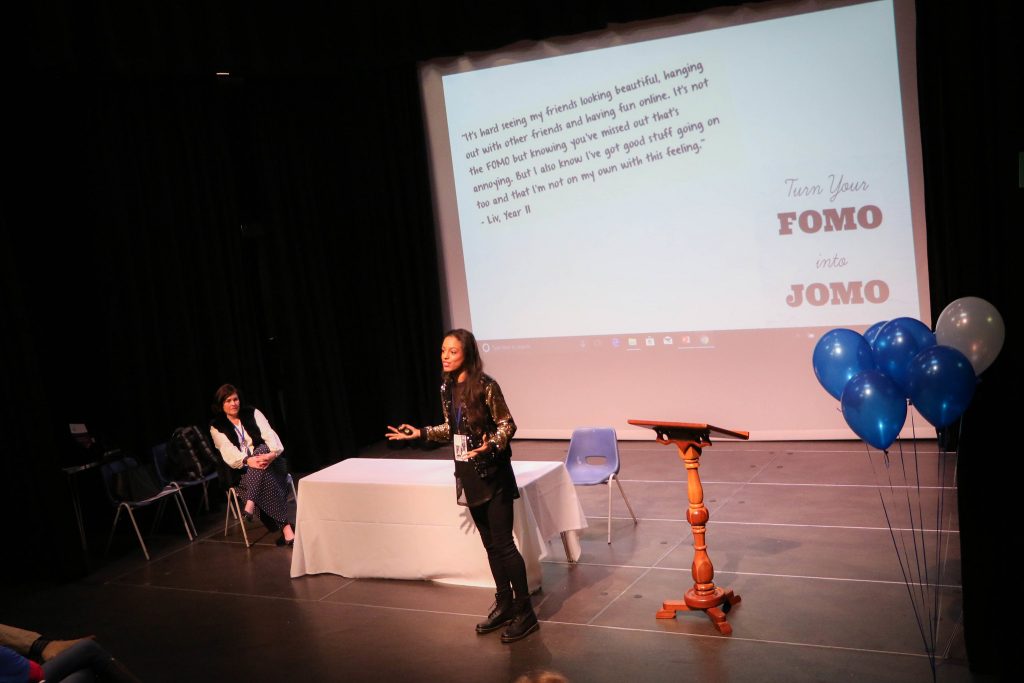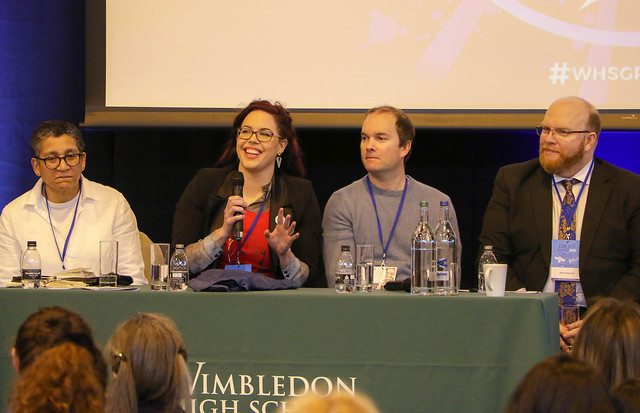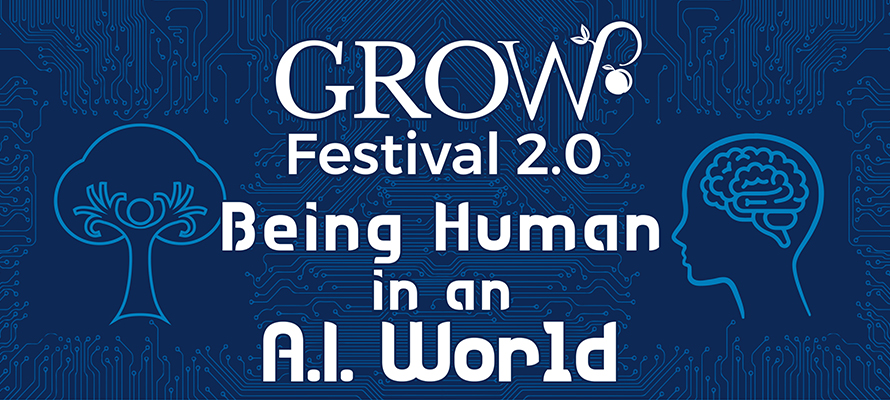On Saturday 21st September we host our second Grow Pastoral Festival. The theme for this year is an examination of what it is to be human in a machine age. What questions should we be asking about the way technology affects our lives and what are our hopes for the future? More specifically, how will our young people develop and grow in a fast-paced, algorithmically driven society and what might education look like in the future?
In the morning session Professor Rose Luckin and Professor Robert Plomin will be giving keynote addresses, and then talk with our Director of Digital Learning & Innovation, Rachel Evans. Prof Luckin specialises in how AI might change education; Prof Plomin has recently published Blueprint, a fascinating read about genetics and education. We can’t wait to talk about how education might get personalised, and how that change might affect our experience of learning.
In the afternoon we’ll dive into some provocative debate with Natasha Devon, Hannah Lownsbrough and Andrew Doyle, addressing questions of identity, wellbeing and community in an online age with our own Assistant Head Pastoral, Ben Turner.
So what kind of questions are in our minds as we approach this intellectually stimulating event? Ben Turner brings a philosophical approach to the topic.
Is our ever-increasing reliance on machines and subscription to the ‘universal principles of technology’[1] eroding our sense of empathy, compassion, truth-telling and responsibility?

Our smartphones give us a constant connection to an echo-system that reflects, and continuously reinforces, our individual beliefs and values. Technology has created a world of correlation without causation, where we understand what happened and how it happened but never stop to ask why it happened. Teenagers are understandably susceptible to an eco-system of continuous connection, urgency and instant gratification. It is these values that they now use to access their world and that inform them what is important in it.
Are tech giants like Amazon, Google and Facebook creating a monoculture that lacks an empathy for its surroundings? If we all become ‘insiders’ within a technology dominated society, pushing instant buttons for everything from batteries to toilet roll, are we losing the ability to see things from a fresh perspective? By raising children in a world of instant access and metropolitan monism are we creating only insiders; young people who will never gain the ability to step back and view what has been created in a detached way. How as parents, schools and communities do we keep what is unique, while embracing the virtues of technological innovation?
Is social media destroying our free will?
If you are not a determinist, you might agree that free will has to involve some degree of creativity and unpredictability in how you respond to the world. That your future might be more than your past. That you might grow, you might change, you might discover. The antithesis to that is when your reactions to the world are locked into a pattern that, by design, make you more predictable – for the benefit of someone or something else. Behaviourism, developed in the 19th Century, believes in collecting data on every action of a subject in order to change something about their experience, often using punishment or reward to enact the change. Is social media, through its algorithms, gratification systems and FOMO, manipulating our actions and eroding our free will?
Social media is pervasive in its influence on the beliefs, desires and temperaments of our teenagers and you do not have to be a determinist to know that that will lead to a disproportionate level of control over their actions. Does social media leave our young people with no alternative possibilities; locked in a room, not wanting to leave but ignorant to the fact that they cannot?
Is social media the new opium of the masses?
Social media has changed the meaning of life for the next generation. The change in human contact from physical interactions to those, arguably superficial, exchanges online is having not only a well-documented detrimental effect on individual young people but also on the very fabric and makeup of our communities.
In addition to the ongoing concerns about privacy, electoral influence and online abuse, it is becoming increasingly obvious that social media has all the qualities of an addictive drug. Psychologists Daria Kuss and Mark Griffiths wrote a paper finding that the “negative correlates of (social media) usage include the decrease in real life social community participation and academic achievement, as well as relationship problems, each of which may be indicative of potential addiction.”[2]
That is not to say that everyone who uses social media is addicted. However, the implications of the ‘heavy’ usage of social media by young people are increasingly painting an unpleasant picture. The UK Millennium Cohort Study, from the University of Glasgow, found that 28% of girls between 13 and 15 surveyed spent five hours or more on social media, double the number of boys survey who admitted the same level of usage. Moreover the NHS Digital’s survey of the Mental Health of children and young people in England[3], which found that 11 to 19 year olds with a “mental disorder” were more likely to use social media every day (87.3%) than those without a disorder (77%) and were more likely to be on social media for longer. Rates of daily usage also varied by type of disorder; 90.4% of those with emotional disorders, for example, used social media daily.

However, there is more to this than just the causal link between the use and abuse of social media and poor mental health. With the march of technology in an increasingly secular world, are we losing our sense of something greater than ourselves? Anthony Seldon calls this the “Fourth Education Revolution”, but as we embrace the advances and wonders of a technologically advanced world do we need to be more mindful of what we leave behind? Da Vinci, Michelangelo and other Renaissance masters, not only worked alongside religion but also were inspired by it. Conversely, Marx believed Religion to be the opium of the people. If social media is not to be the new opium, we must find a place for spirituality in our secular age. Even if we are not convinced by a faith, embracing the virtues of a religious upbringing seems pertinent in these turbulent times. Namely inclusivity, compassion and community, because if we do not, then very quickly the narcissistic immediacy and addictive nature of social media will fill the void left in our young peoples’ lives, becoming the addictive drug that Marx forewarned against.
References:
[1] Michael Bugeja, Living Media Ethics: Across Platforms, 2nd Ed. 2018
[2] Online Social Networking and Addiction – A review of Psychological Literature, Daria J. Kuss and Mark D. Griffiths, US National Library of Medicine, 2011
[3] November 2018

